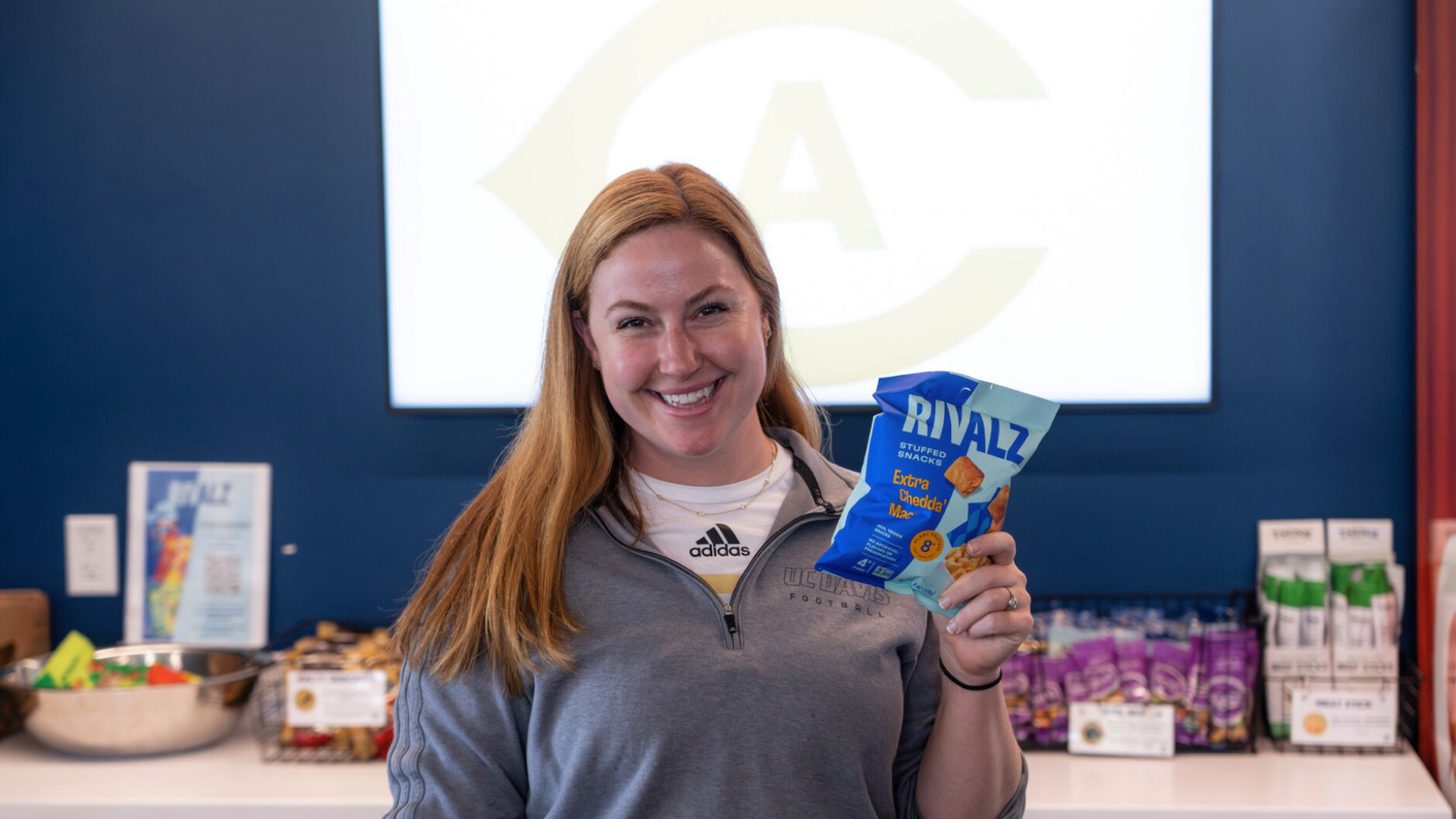

Fueling for Success with Rachael Mack, MS, RD, CSSD
with Dr. Emily Fritz
Whether you're a morning jogger, a competitive athlete, or simply someone dedicated to maintaining an active lifestyle, understanding the right way to fuel your body before workouts and while you recover can greatly enhance your performance and overall health. To delve deeper into effective strategies for nutrition around exercise, I spoke with Rachael Mack, MS, RD, CSSD, the Director of Performance Nutrition at the University of California, Davis. Rachael is a registered dietitian and a Certified Specialist in Sports Dietetics who provides nutrition guidance and expertise to college, professional, and Olympic athletes.
Passionate about helping athletes achieve their dietary goals, Rachael's insights are invaluable for anyone seeking to optimize their training outcomes. I began our conversation by asking her for pre-exercise fueling advice. She explained, “Your pre-exercise nutrition should align with the type of activity you're planning and when you last ate. If it's been 3 to 4 hours since your last meal and you're facing a session longer than 45 minutes, I recommend a carbohydrate-rich snack about 30 to 60 minutes before starting. Opt for foods that are easy to digest.” She suggests snacks like applesauce, granola bars, crackers, and pretzels for the athletes at UC Davis, emphasizing that carbohydrates are key since they are the primary fuel source for strenuous activities.
Highlighting the importance of pre-exercise fuel, Rachael emphasized, “Fueling before a workout is so important because if we don’t eat beforehand, the workout can be wasted. If we aren’t fueled, it makes the work that we’re putting in not as effective as we’d like it to be.” I asked her about adapting to this regimen, especially for those who might feel discomfort after pre-workout eating. She replied, “We can train our gut to be able to handle food beforehand and we can train our mind to pack food and plan how we’ll fuel before exercise. Like the exercise that follows, we’re practicing those important fueling habits each time we go to work out.”
Discussing post-workout nutrition, Rachael noted, “Your post-workout needs are also based on how intense and long your workout was. If you’re training session is longer, you’re going to need more carbs post-workout, but if it’s shorter you probably don’t need as many carbs.” After long, endurance exercise sessions like running or biking, carbohydrates are important post-workout to help replace our body’s main source of carb storage in our muscles called glycogen.
She also addressed the importance of protein, advising, “Post-workout protein needs are fairly consistent across different activities, generally ranging from 25 to 50 grams depending on body weight.” For protein sources, she recommended meat, dairy, eggs, protein powders, and for plant-based diets, options like soy, edamame, and seeds. Protein is essential for muscle building and repair after exercise and getting enough is important for optimizing recovery and increasing lean body mass. She also suggested, “If you’re plant-based, you could make your own trail mix with dried bean snacks, dried edamame, dried chickpeas, some Rivalz Stuffed Snacks, and some nuts. You could add in a little carb with some pretzels and make a really delicious savory snack mix that could be a great way to get post-exercise protein and carbs in.” Rachael mentioned that Rivalz are offered as an option in the UC Davis Athlete Fueling Station as a post-workout savory snack option with 8 grams of protein and 4 grams of fiber per serving.
On snack choices, Rachael advised, “Check the nutrition labels; prioritize carbohydrates for pre-workout snacks and protein and fiber for post-workout recovery.” To assess whether your nutrition strategy is effective, she shared, “If someone’s not getting enough fuel, signs are things like fatigue, really low energy, sometimes bloating, and not getting the results you expect. The performance impact could be not seeing increases in muscle mass or taking a really long time to recover. If we’re still tired 3-5 days out from a workout, we probably aren’t recovering very well because we’re not eating enough in and around workout time.”
Finally, Rachael stressed the importance of planning, reminding us, “The biggest thing is to plan your pre and post fuel like you plan your workout. If we’re carving out time to do that activity we need to make sure that activity is adequately fueled and adequately recovered because that is how we take advantage of all the hard work.”
So the next time you head out for a workout, think about Rachael’s tips for fueling and recovering from exercise including:
- Plan for success: Strategically plan pre and post-workout nutrition as part of your overall training regimen.
- Pre-Workout Carbs: Eat a carb-rich, easy to digest snack 30-60 minutes before exercise.
- Post-Workout Protein: Optimize recovery with 25-50 grams of protein after workouts. Don’t forget to include carbs after long duration activity.
- Monitor Your Fueling: Watch for signs of inadequate fueling like fatigue and slow recovery and adjust your nutrition plan.
- Practice makes perfect: Practice your fueling routine including adjusting to exercising after eating. Set up a routine and find foods you enjoy that make it easy to be consistent.
